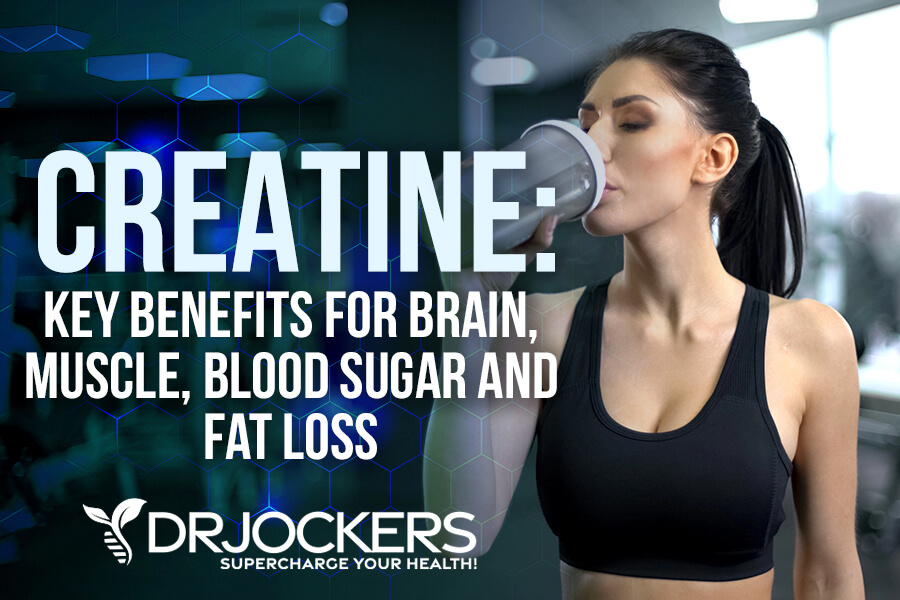 Creatine: Key Benefits for Brain, Muscle, Blood Sugar, and Fat Loss
Creatine: Key Benefits for Brain, Muscle, Blood Sugar, and Fat Loss
Creatine is one of the most popular and researched supplements in the fitness field. It is a great option for increasing your muscle mass, boosting your workout performance, improving your body composition, or enhancing recovery. It truly is a staple if you are into working out.
The benefits of creatine also go beyond the gym. It may also support normal blood sugar levels, brain health, and intercellular energy levels. Today, I want to discuss the benefits and unravel the science behind creatine supplementation.
In this article, you will learn what creatine is and how it works in your body. I will go over the benefits of using creatine. You will learn how to use it and understand how to select the right creatine supplement and what things to avoid. I will also share when not to use creatine and when speaking with your doctor is warranted.

What is Creatine and How it Works
Creatine is a naturally occurring compound that is classified as a nitrogenous amino acid derivative. It is primarily stored in muscle cells and acts as a readily available energy source by helping to regenerate adenosine triphosphate (ATP) during high-intensity exercise through its conversion to phosphocreatine.
Creatine is a natural source of energy that supports the contraction (flexing) of your skeletal muscles. It provides a steady supply of energy to your muscles that allows them to work even when you are not working out.
Creatine enhances the availability of adenosine triphosphate (ATP), which is the main carrier of energy in your cells. Imagine that you are doing sprinting, weightlifting, or other high-intensity activity. This is when your body relies on ATP for quick energy.
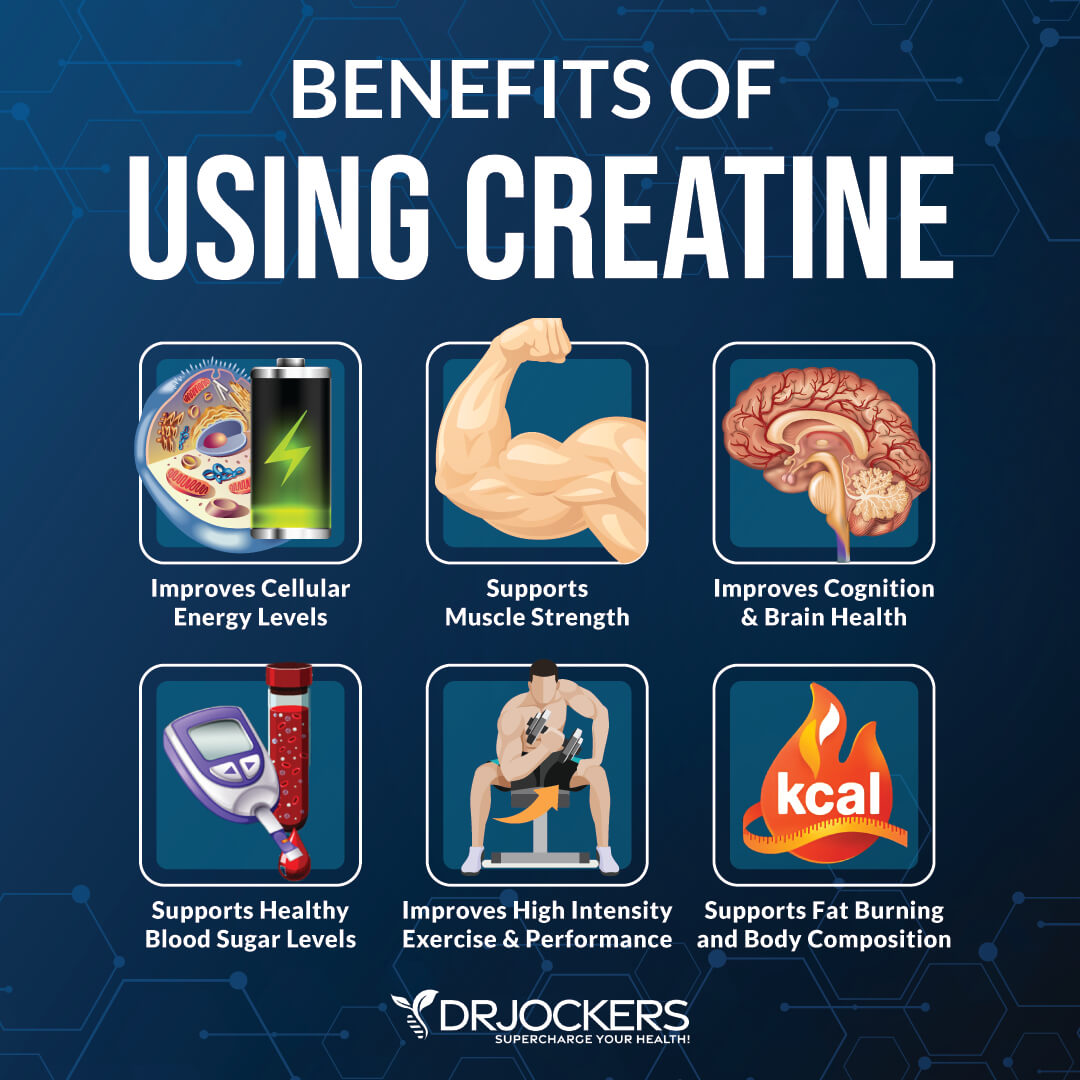
Creatine is stored in your muscles as phosphocreatine. Phosphocreatine is a rapid source of phosphate groups that can create ATP from adenosine diphosphate (ADP). This process allows your body to maintain energy during intense physical activity. It supports strength building, performance, muscle recovery, and muscle cell hydration.
Your body naturally produces creatine in your liver, kidneys, and pancreas. Most of it gets delivered to your skeletal muscles and the rest supports your brain, heart, and other tissues.
Certain foods are a great source of creatine, including protein-rich foods, such as red meat, fish and seafood, cow, sheep, and goat milk. You may also improve your creatine needs with creatine supplements in powder, capsule, tablet, liquid, or energy bar format.
Benefits of Using Creatine
Creatine offers a variety of health benefits. Here are the key benefits of creatine:
Improves Cellular Energy Levels
Creatine supplements may help to improve your cellular energy levels. According to a 2001 review published in Pharmacological Reviews, it may help to reduce ATP depletion (1). Creatine can increase the phosphocreatine stores in your muscles. Phosphocreatine plays a critical role in ATP energy formation.
According to a 2003 review published in the Journal of Sports Science and Medicine, creatine supplementation may help to increase your phosphocreatine stores, which can fuel your muscles during your workouts (2). As you will learn later, creatine may support your physical and mental performance through increased ATP energy.
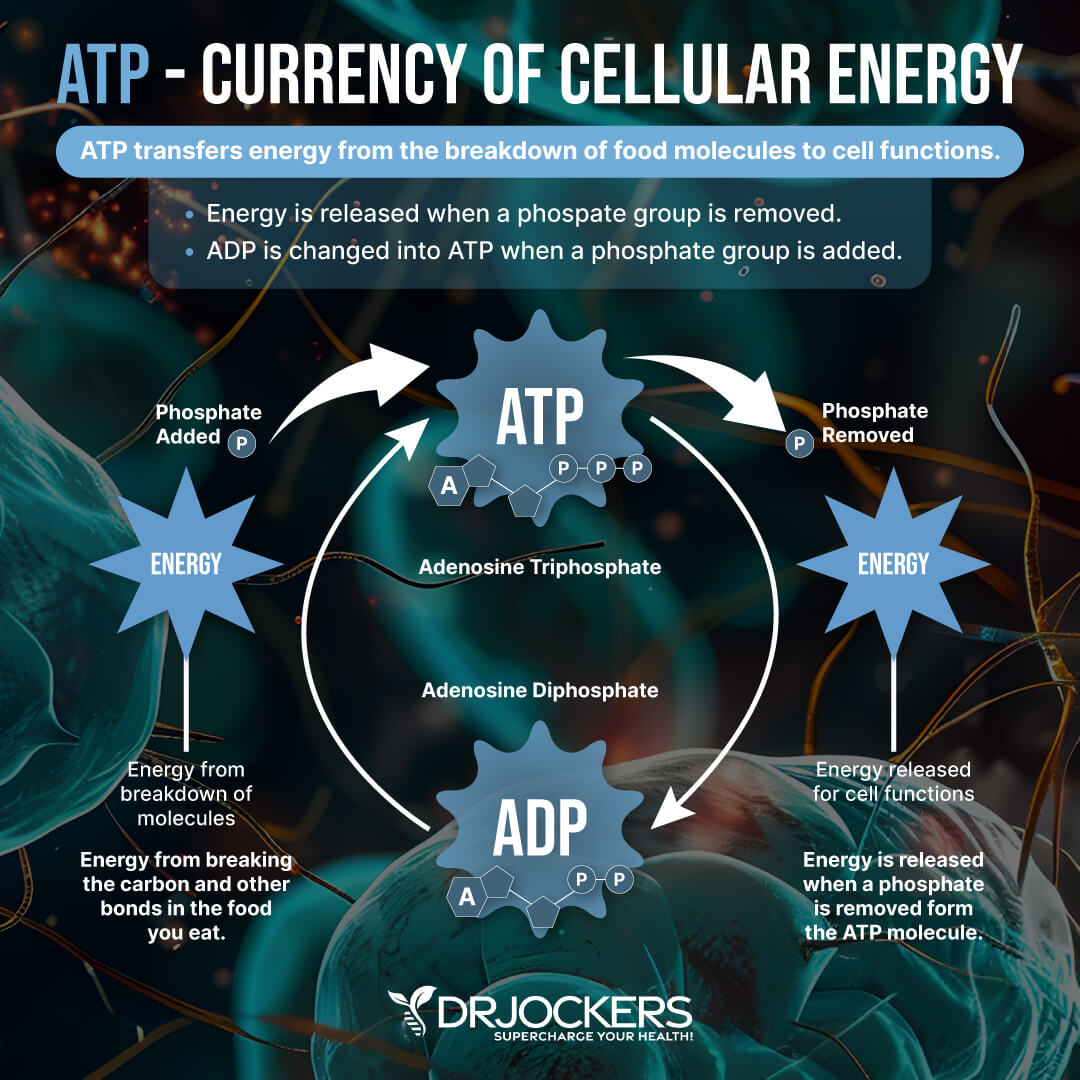
Supports Muscle Strength & Growth
One of the main benefits of creation supplements is improving muscle strength, muscle growth, and muscle mass. According to a 2008 review published in the International Journal of Nutrition, Exercise, and Metabolism, creatine may support resistance training workouts (3). It may boost the formation of proteins that can help to increase your muscle fibers.
According to a 2011 research paper published in Skeletal Muscle, it can increase insulin-like growth factor (IGF-1) hormone levels which supports muscle mass growth (4). Studies have shown that it may help to grow muscle mass along without a workout regimen.
For example, a study published in the European Journal of Applied Physiology has found that creatine helps participants to increase their muscle mass by 4.4 pounds or 2 kg on average within a 6-week training and 3-week detraining period (5).
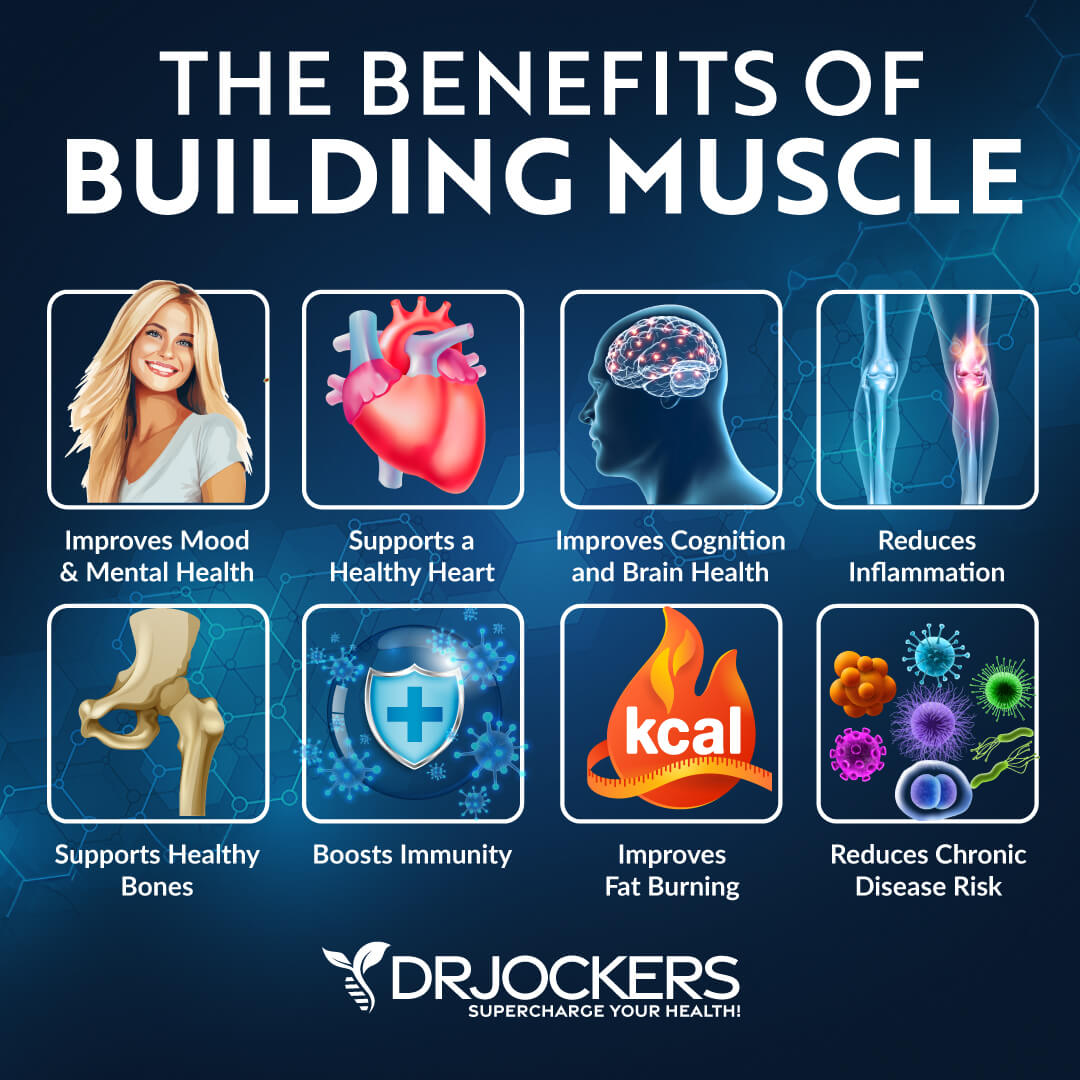
Improves Cognition and Brain Health
Creatine supplements may also help to improve your brain health and cognition. Your brain needs ATP energy to perform difficult cognitive tasks. And, as you know, creatine can help to increase ATP energy.
Creatine supplements can improve your phosphocreatine stores to create more ATP. According to a 2003 study published in Proceedings Biological Sciences, oral creatine supplementation may help to improve brain performance by improving mitochondrial health and increasing hippocampal Brain Derived Neurotrophic Growth (BDNF) production (6).
This may be particularly great news for older individuals to boost brain function and offer protection against memory and cognitive decline. According to 2014 research published in F1000 Research, creatine may help to reduce age-related cognitive decline and help fight against Alzheimer’s disease, Parkinson’s disease, Huntington’s disease, and amyotrophic lateral sclerosis (7).
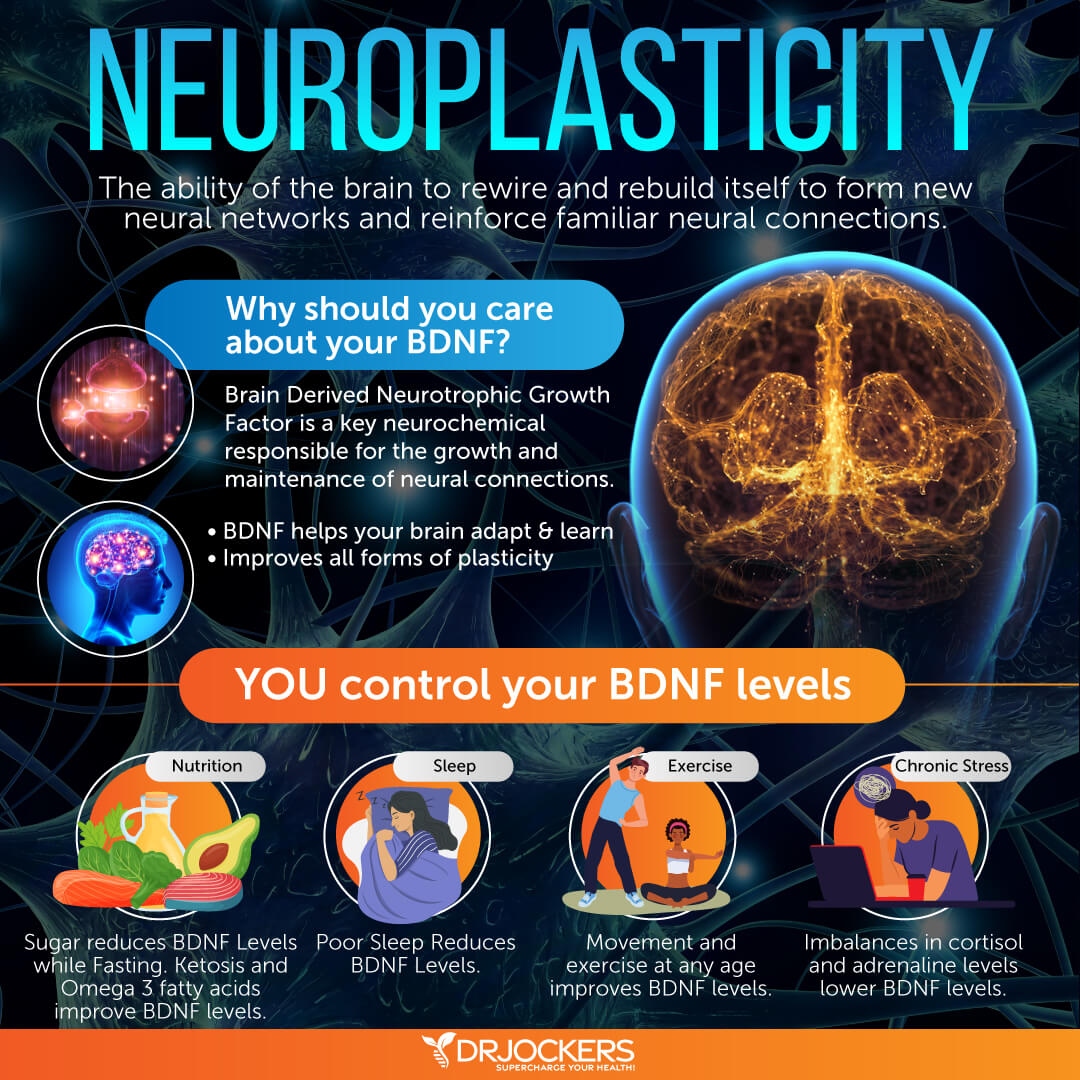
Supports Healthy Blood Sugar Levels
Creatine supplementation may also help to support healthy blood sugar levels. It may increase the function of glucose transporter type 4 or GLUT-4 molecule which transports blood glucose to your muscles.
A 2008 study published in Amino Acids has found that using creatine and exercising for 12 weeks has helped to improve blood sugar levels after high carbohydrate meals more compared to those who exercised but didn’t take creatine (8).
This may be good news if you have insulin resistance, pre-diabetes, or diabetes. According to a 2021 study published in Nutrients, creatine may help with blood sugar management in patients with diabetes (9).
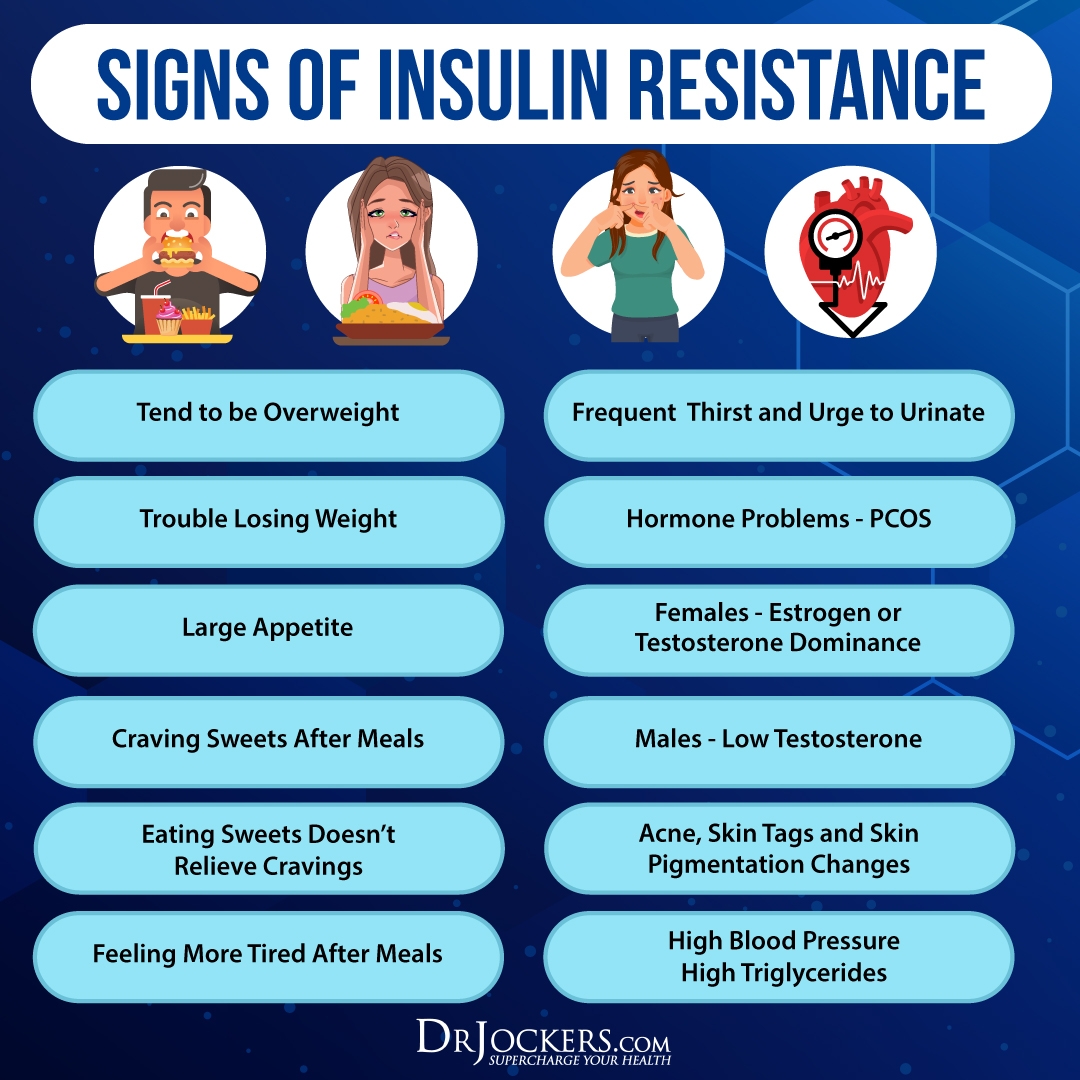
Improves High-Intensity Exercise & Sports Performance
We already talked about the benefits of creatine for muscle strength and muscle growth. It may not be surprising that creatine may help to improve high-intensity exercise and sports performance as well. By increasing ATP production, creating can play a direct role in improving your exercise performance.
It can help with strength, sprinting ability, ballistic power, muscle endurance, muscle strength, resistance to fatigue, and recovery. According to a 2003 review published in Molecular and Cellular Biochemistry, creatine may help to improve high-intensity exercise by up to 15 percent (10).
A 2021 review published in Nutrients has found that creatine may help to improve intermittent, high-intensity, short bouts of exercise performance (11).
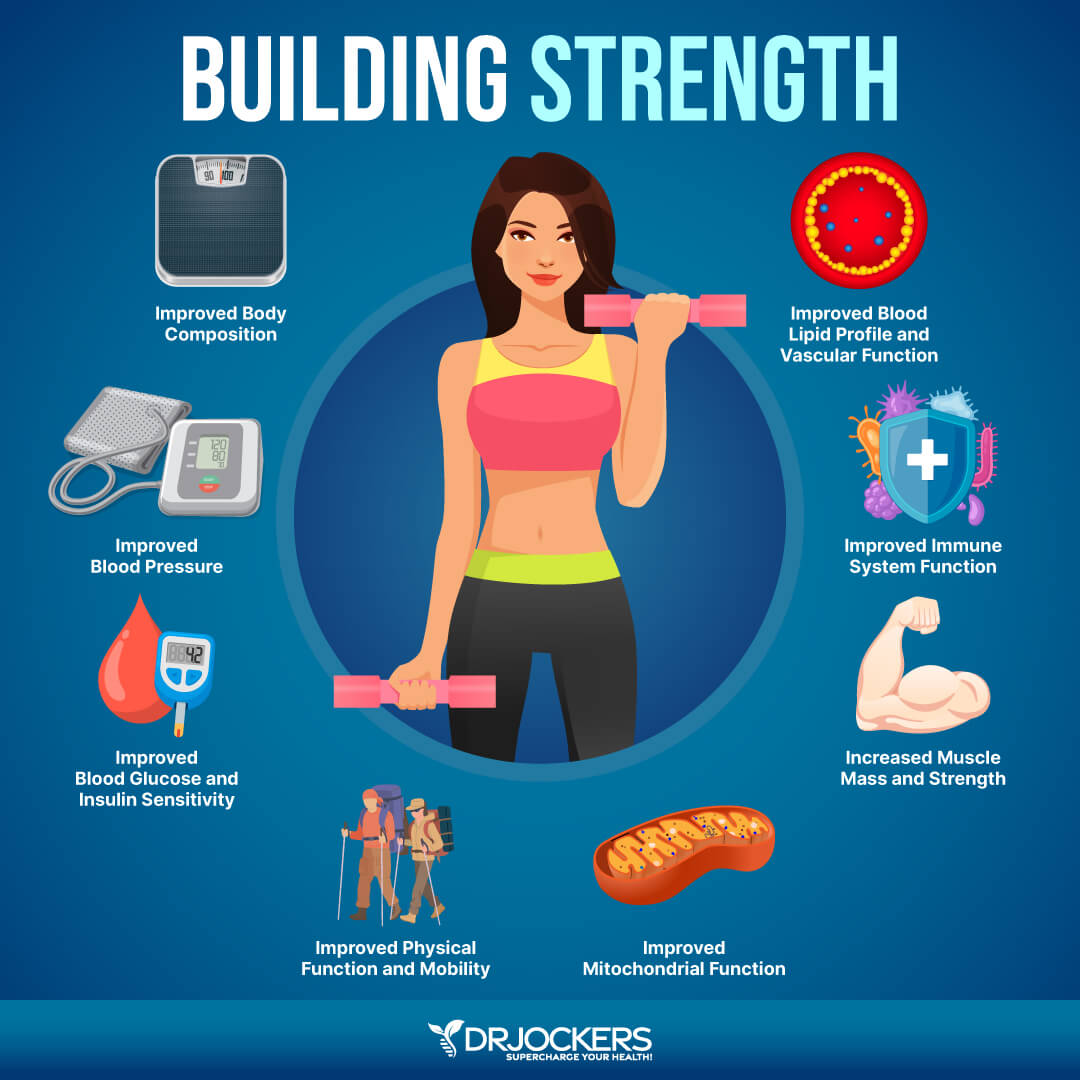
Supports Fat Burning and Body Composition
Finally, creatine may also help to improve fat burning and body composition. By improving your ability to lift heavier weight, perform better at high-intensity exercise, and build muscle, it can help to promote fat loss, improve your body fat-muscle ratio, boost your metabolic rate, and help you achieve a leaner body and better body composition.
In a 2019 review published in the Journal of Functional Morphology and Kinesiology, creatine supplementation along with resistance training may help to reduce body fat in people under 50 years of age (12). A 2023 review published in Nutrients has also found that combining resistance exercise with creatine supplementation may support fat loss and better body composition (13).
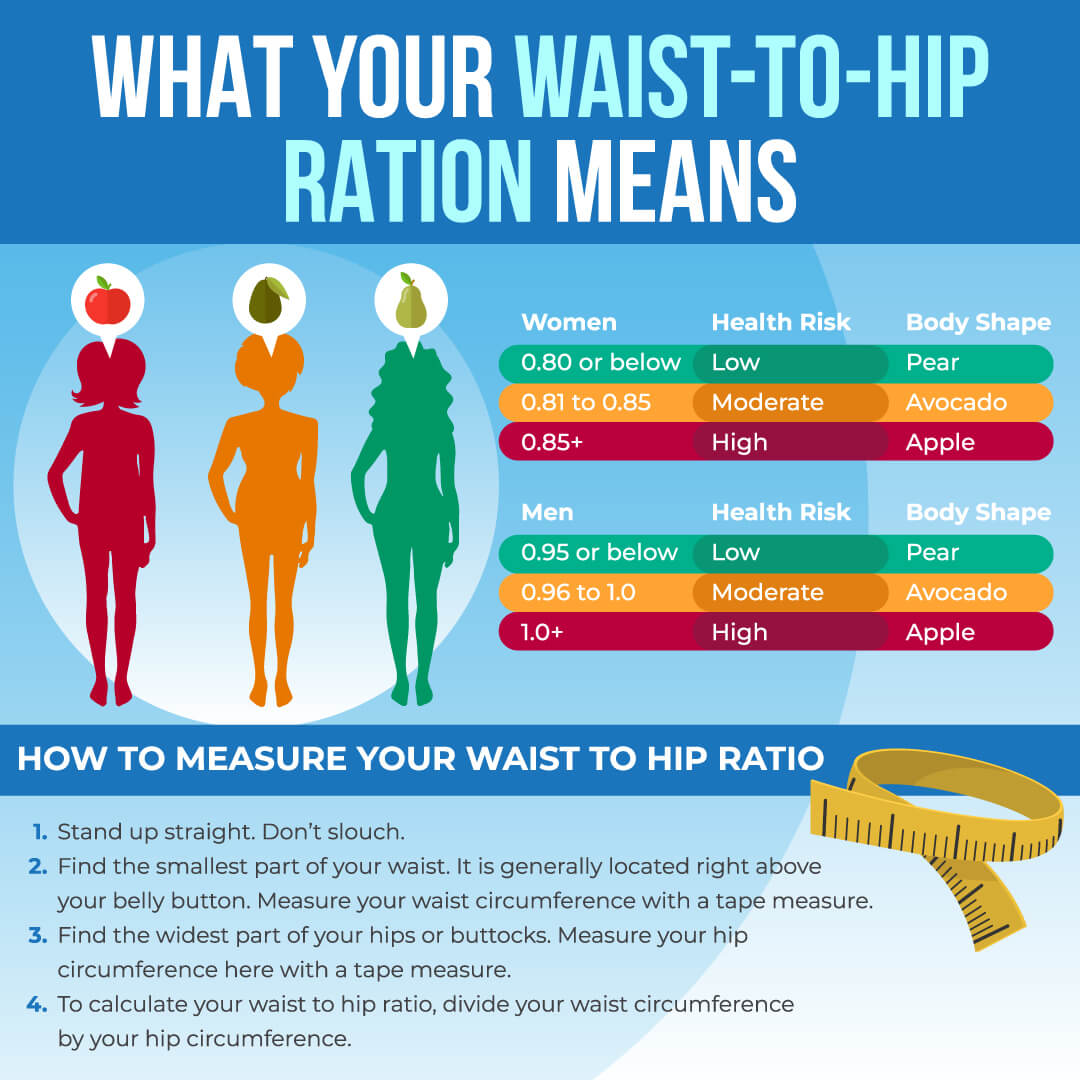
How to Use Creatine
So how do you use creatine? First, buy creatine from a trusted brand and follow the recommendations in the next section on what supplements to avoid.
Make sure to only use creatine monohydrate, which is the most researched form of creatine. Micronized form in a powder is the most bioavailable, so your body can benefit from it quickly.
It is safe and healthy to use 3 to 5 grams daily. If you want to gain muscle mass, take 5 grams of creatine four times daily in water or in a shake for 7 days. After this initial week, drop back to 3 to 5 grams daily.
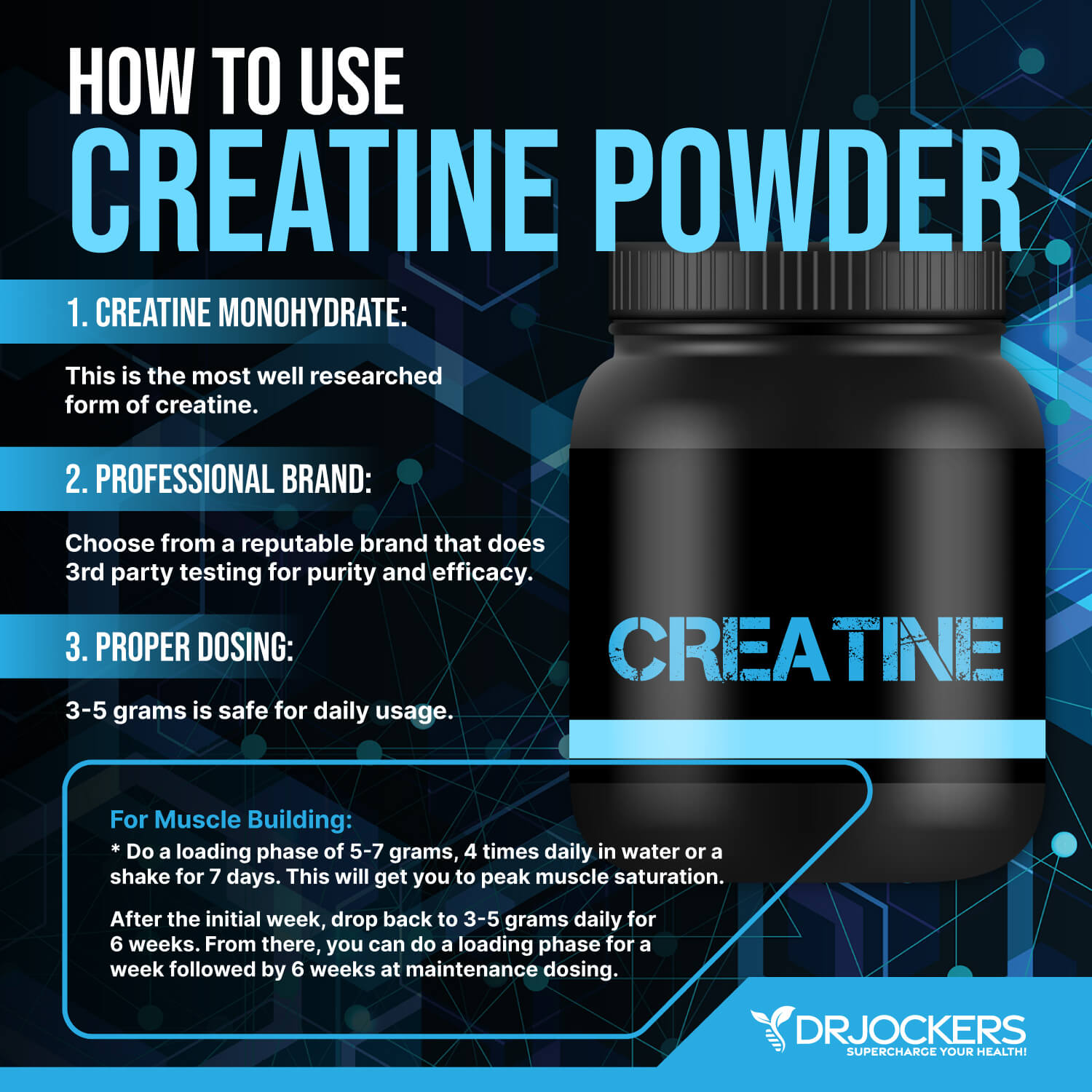
Things to Avoid with Creatine Powders
When you are using creatine powders, it’s important that you follow some guidelines and select a high-quality brand. Avoid any brands and products with artificial colors, dyes, or excessive sugar.
Additives, like artificial colors, dyes, and added sugar offer no additional benefit. Instead, they may interfere with the supplement’s effectiveness, add unnecessary sugar or calories, and increase the risk of chronic inflammation and health issues.
Instead of these ‘junk’ creatine powders with additions, for optimal absorption and efficacy, mix creatine with a protein shake that includes natural carbohydrate sources, such as fruit. Healthy carbs, like fruits, may even support the uptake of creatine into muscle cells by stimulating insulin release, which helps transport the creatine more effectively.
Combining creatine with a protein shake with some healthy carbs coming from fruit (preferably organic fruit) can ensure that you’re not only supporting muscle energy but also maintaining a cleaner and more efficient supplement regimen.
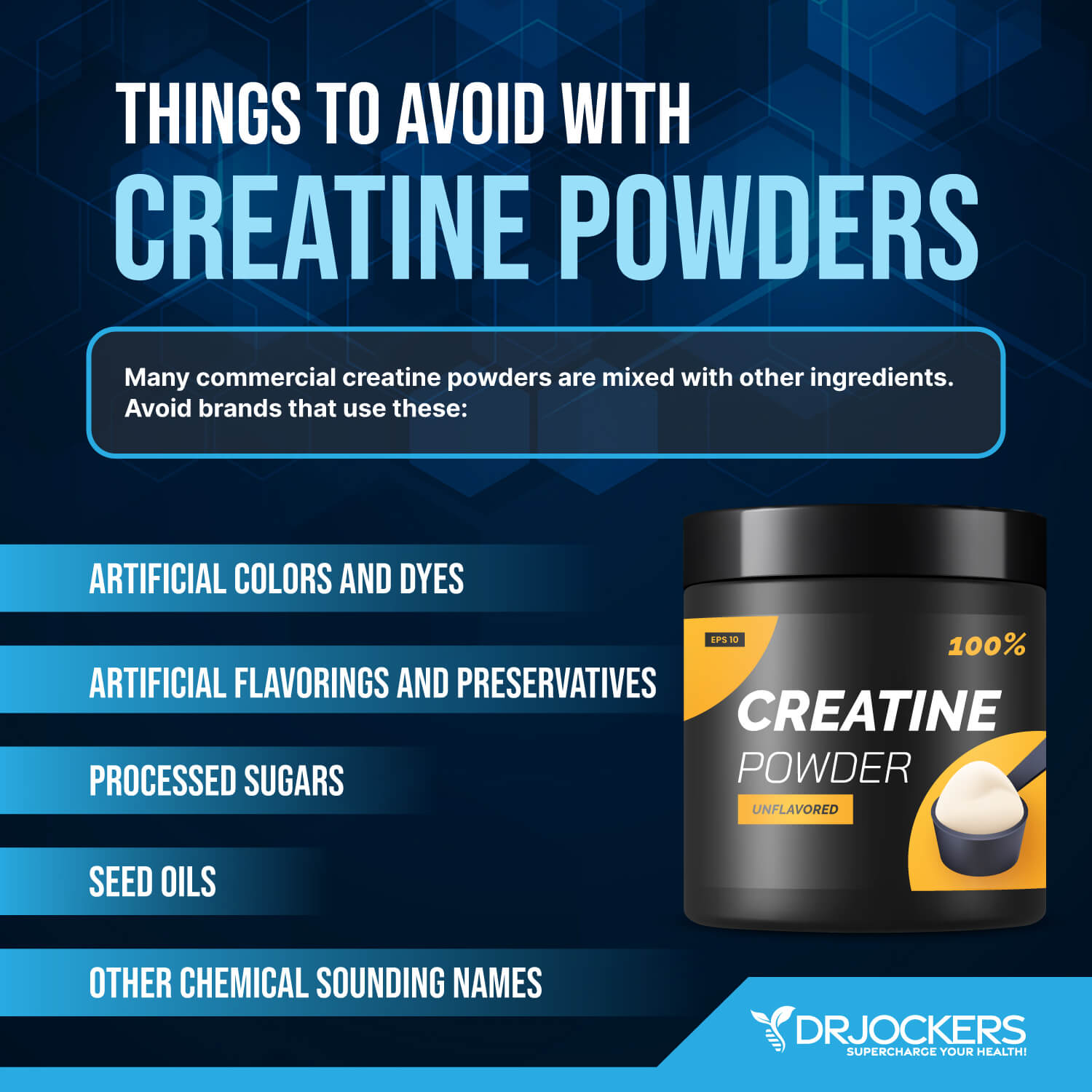
When Not to Use Creatine
Creatine is a generally safe supplement for most people. Potential side effects may include weight gain from water retention, nausea, vomiting, diarrhea, dizziness, or excessive sweating (hyperhidrosis). Taking smaller doses throughout the day and starting out gradually may help to reduce side effects. Still, some people should not use creatine. Avoid creatine if:
Kidney or Liver Disease
It is generally advised to avoid creatine supplements if you have kidney or liver disease. People with poor liver function or kidney disease may have a difficult time clearing creatine from their system, adding extra stress and damage to their kidneys. Liver disease and liver issues may also impact how your body synthesizes, metabolizes, and overall handles creatine.
Yes, it is generally advised to avoid creatine supplementation if you have kidney or liver disease. For individuals with these conditions, it’s important to consult with a healthcare provider before starting any new supplement, including creatine, to ensure it won’t exacerbate existing health issues.
Taking Medications
Being cautious with creatine or any other supplements is always a good idea if you are taking any medications. Some medications may interfere with or poorly interact with creatine, reduce its effectiveness, or increase side effects.
For example, if you are on medication for renal or liver health, it may affect how creatine is metabolized. Some medications may influence hydration, electrolyte levels, or muscle function, and adding creatine into a mix may cause issues. It’s always advisable to consult with your doctor before taking creatine to ensure it won’t interfere with your medications or underlying health conditions.
Pregnancy or Nursing
If you are pregnant or nursing, creatine may not be the right idea either. There is very limited research on the safety of creatine during pregnancy or breastfeeding. The potential effects on fetal development or infant health are not yet clear, neither is its impact on hormonal and metabolic health during this period in the mother’s or infant’s life.
It’s better to stay on the side of caution. As always, talk to your healthcare provider before taking any supplements, especially if you are pregnant or breastfeeding to ensure it’s a safe choice for you and your baby.
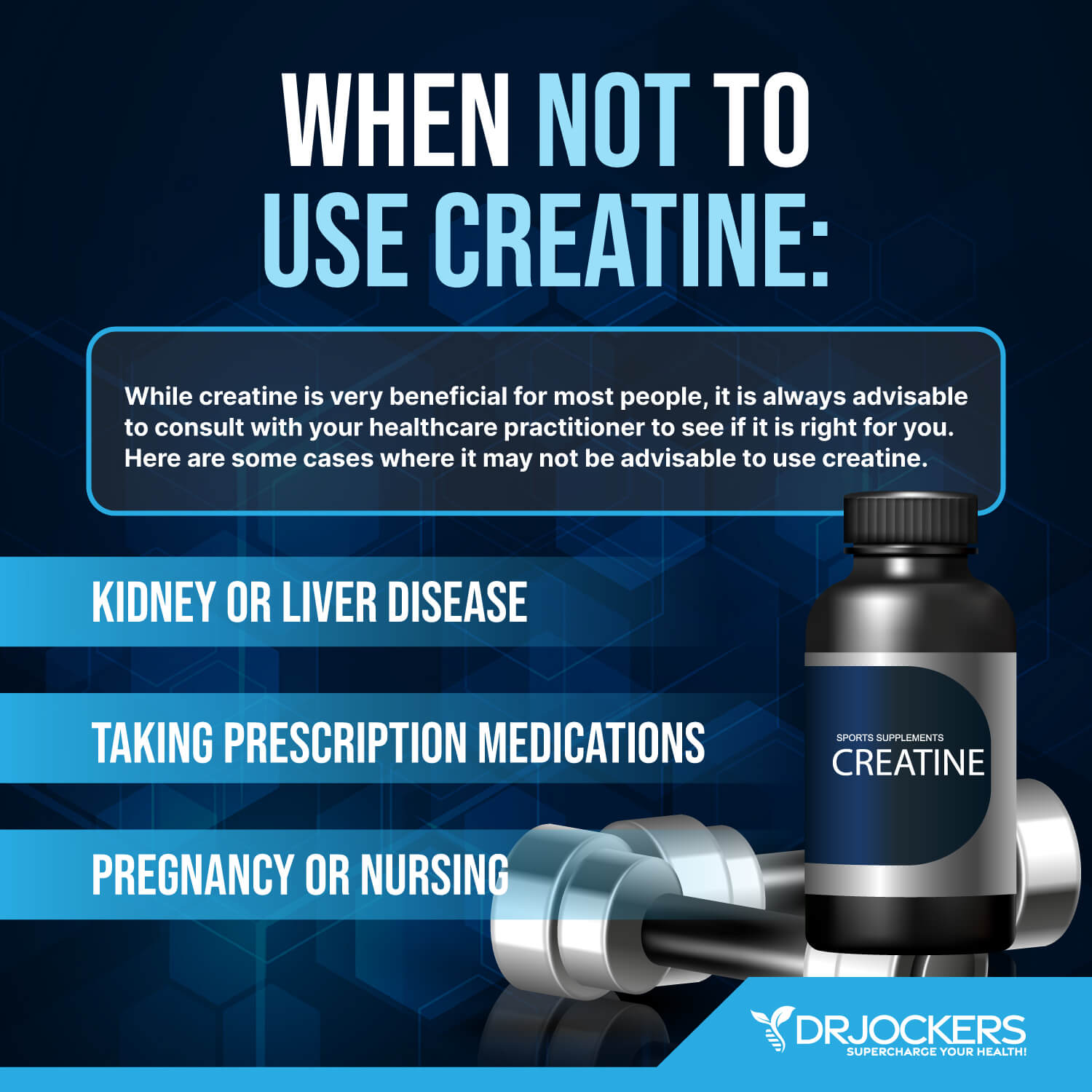
Introducing Creatine Strong
If you are interested in the benefits of creatine, I recommend using Creatine Strong. I recommend this supplement for individuals who are looking to enhance muscle performance or support cellular energy and cognitive function!
This creatine supplement has 5 g of micronized creatine per scoop in a convenient powder that rapidly dissolves in liquid. It is formulated with micronized technology allowing for improved absorption and digestibility and enhanced bioavailability to targeted muscle tissue.
It provides a natural taste through an unflavored and unsweetened powder. It has absolutely no artificial flavors, sweeteners, or dyes. It may help promote high‑intensity exercise capacity and lean body mass during training.
Creatine supplementation with Creatine Strong may provide nutritional intervention to support healthy aging by reducing muscle loss in the aging population. Creatine supplementation may support brain health and cognitive processing by increasing brain creatine and ATP. Mix 5 grams in 8 to 10 ounces of water per day.
Final Thoughts
Creatine is a fantastic supplement for increasing your muscle mass, boosting your workout performance, improving your body composition, or enhancing recovery. It may also support normal blood sugar levels, brain health, and intercellular energy levels. If you are looking to gain these benefits of creatine, I recommend that you follow my tips in this article and try my recommended supplement.
If you want to work with a functional health coach, I recommend this article with tips on how to find a great coach. On our website, we offer long-distance functional health coaching programs. For further support with your health goals, just reach out and our fantastic coaches are here to support your journey.
Inflammation Crushing Ebundle
The Inflammation Crushing Ebundle is designed to help you improve your brain, liver, immune system and discover the healing strategies, foods and recipes to burn fat, reduce inflammation and Thrive in Life!
As a doctor of natural medicine, I have spent the past 20 years studying the best healing strategies and worked with hundreds of coaching clients, helping them overcome chronic health conditions and optimize their overall health.
In our Inflammation Crushing Ebundle, I have put together my very best strategies to reduce inflammation and optimize your healing potential. Take a look at what you will get inside these valuable guides below!
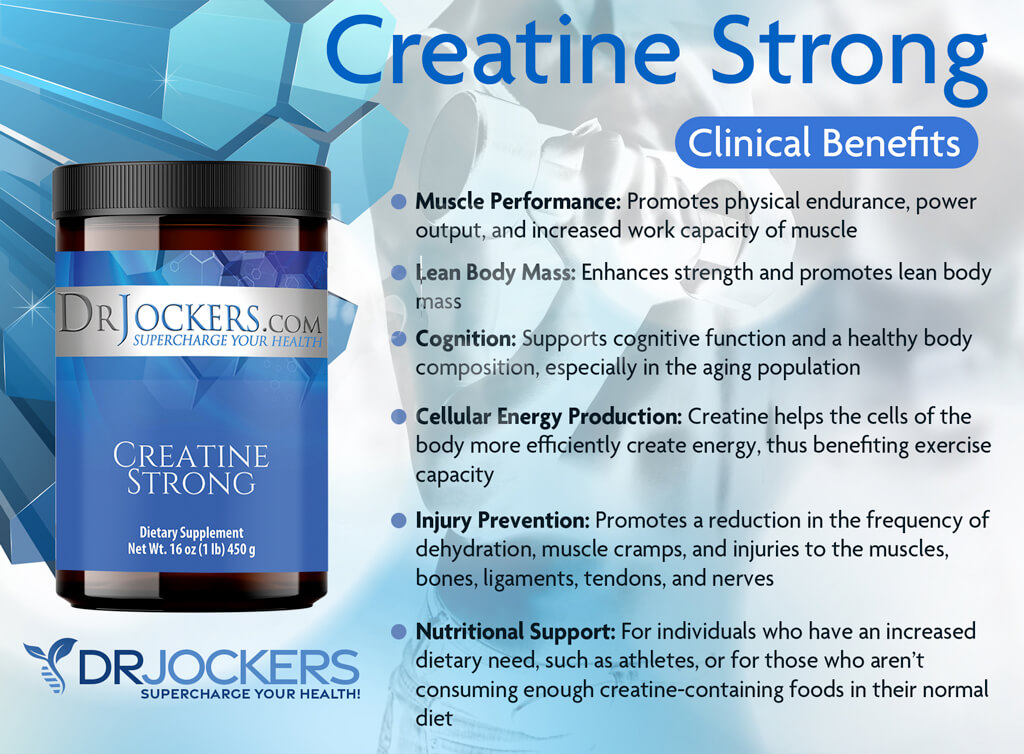


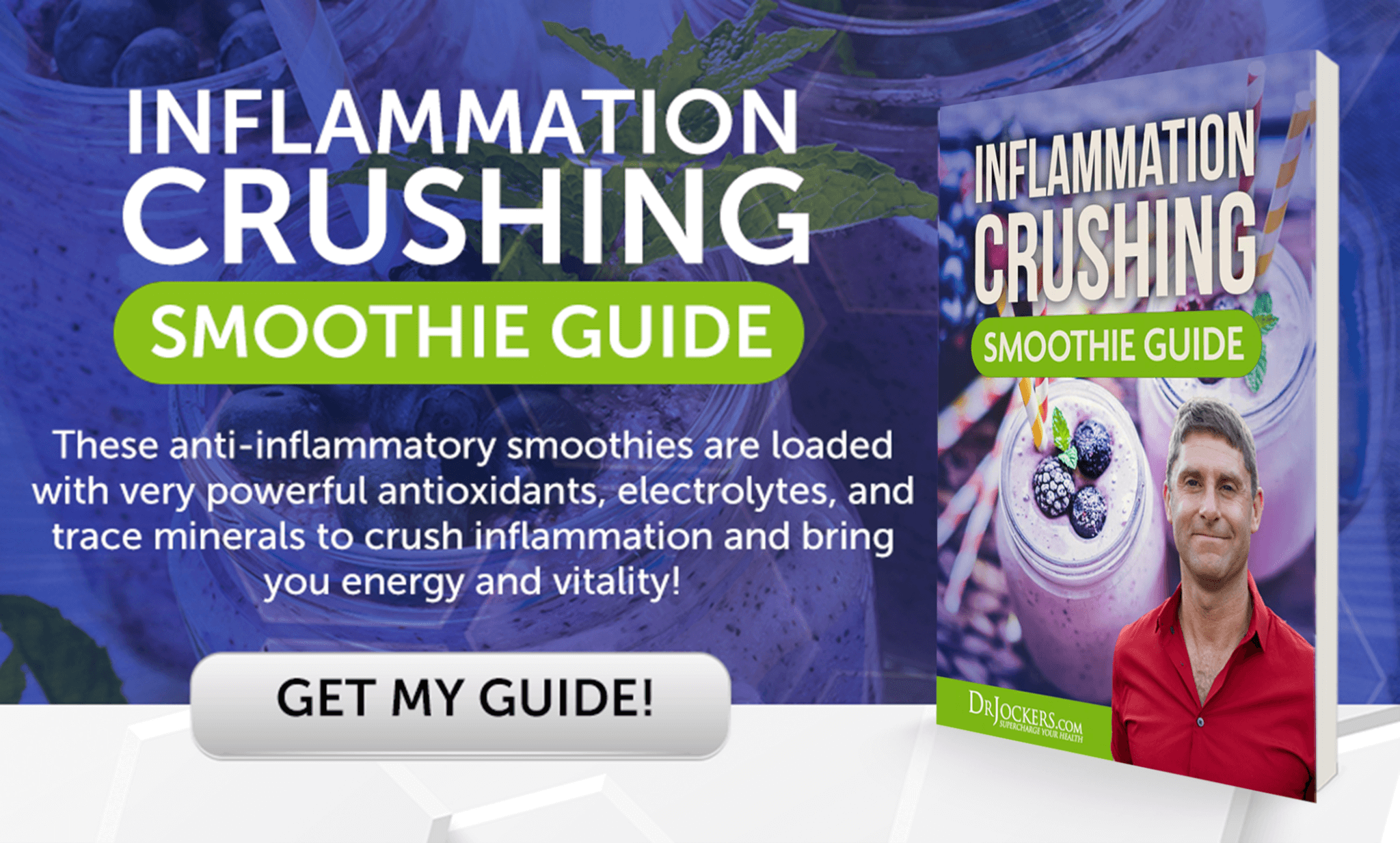


For women, creatine is sometimes reported to cause hair fall. What is your experience with this?